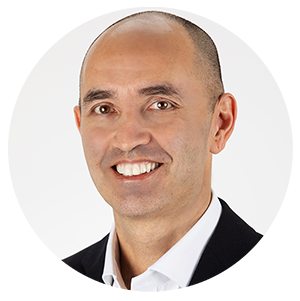The multiplication effect: how synergistic remediation can achieve stringent targets for chlorinated solvent treatment
Language: English
Presenter: Todd Herrington, Director of Product Management, REGENESIS and Marcello Carboni, Regional Manager Europe, REGENESIS
In this webinar, we explore the benefits of combining In Situ Stabilisation (ISS), Enhanced Reductive Dechlorination (ERD) and In Situ Chemical Reduction (ISCR) to protect sensitive offsite receptors from chlorinated solvent contamination. This combination of technologies can achieve incredibly low target concentrations within a very short period, avoids the build up of toxic daughter compounds and can be maintained indefinitely, if needed.
European Regional Manager, Marcello Carboni is joined by our Director of Product Management, Todd Herrington to explain how the technologies work individually and their synergistic effects when co-applied. This is demonstrated through the latest laboratory and field data. This also includes a case study from an industrial site in the centre of an urban area in Italy, where the fast-flowing contaminated groundwater under the site was remediated using a combined application in a barrier formation, achieving vinyl chloride targets of <0.5µg/L, within a few months of application. A second case study from the US, demonstrates how multiple barriers can be used to target elongated plumes, where the combination of technologies can be adjusted to provide the most accurate and effective treatment. In this case, TCE concentrations have been rapidly reduced to protect a river impacted by a >500m long plume. The presentation also discusses practicalities and pitfalls including application approaches, spacing and optimisation of the treatment components.
The colloidal technologies included in the treatment are:
- PlumeStop, a suspension of colloidal activated carbon particles the size of red-blood cells that have unsurpassed sorption kinetics. This coats the aquifer and creates a permanent subsurface filter, to remove the contaminant influx from the groundwater.
- S-MicroZVI, an injectable zero valent iron that has been sulfidated to maximise contaminant contact and minimise passivation. This distributes throughout the target zone to contact and chemically reduce the contamination sorbed to the PlumeStop, minimising the production of chlorinated daughter compounds.
- AquiFix, a liquid containing micron-scale organic particles designed to provide >10 years of electron donor release. This stimulates and maintains a large biomass of reductive dechlorinating bacteria that degrade any toxic daughter compounds and regenerate sorption sites on the PlumeStop to allow further adsorption and degradation of contaminant influx.
The presentation also demonstrates the treatment benefits covering a low carbon footprint, zero waste production and minimised costs.
About the presenters:
 Todd Herrington,
Todd Herrington,
Director of Product Management | REGENESIS
Todd Herrington serves as Director of Product Management at REGENESIS Remediation Solutions and has a +25-year career in in situ remediation. Todd possesses an in-depth understanding of the complexities of in situ remediation, having evaluated or implemented mechanical, biological, and chemical in situ remedial technologies at over a thousand sites. He most recently led the expansion of colloidal activated carbon for hydrocarbon treatment into +40 states and over +16 countries, establishing it as a critical growth technology with still-growing markets and innovative uses. Currently, he provides similar leadership across the entire product range for REGENESIS. With a Master’s in Environmental Engineering and a passion for the environment, he has consistently driven innovation and customer-centric solutions in the remediation technology sector.
 Ing. Marcello Carboni
Ing. Marcello Carboni
Regional Manager, Europe | REGENESIS
Marcello Carboni is the European Regional Manager at REGENESIS. In this role, he coordinates technical and sales activities across Europe, Middle East and Africa. From 2011 to 2018, Marcello covered the role of Mediterranean District Manager, providing support to clients in several Southern European countries. Before joining REGENESIS, Marcello gained ten years of experience in the design and implementation of investigation and remediation activities at an Italian environmental consulting company. Marcello obtained his master’s degree in Environmental Engineering from the Polytechnic University of Turin, Italy in 2001, after spending part of his studies at the Technical University of Delft (TUDelft) in the Netherlands and at the Universitat Politècnica de Catalunya (UPC) in Barcelona, Spain.

 Americas
Americas Europe
Europe Français
Français Deutsch
Deutsch Italiano
Italiano Español
Español
